

Top companies trust Airbyte to centralize their Data







Select your source

Select your destination

Sync your Data
Ship more quickly with the only solution that fits ALL your needs.
As your tools and edge cases grow, you deserve an extensible and open ELT solution that eliminates the time you spend on building and maintaining data pipelines
Leverage the largest catalog of connectors
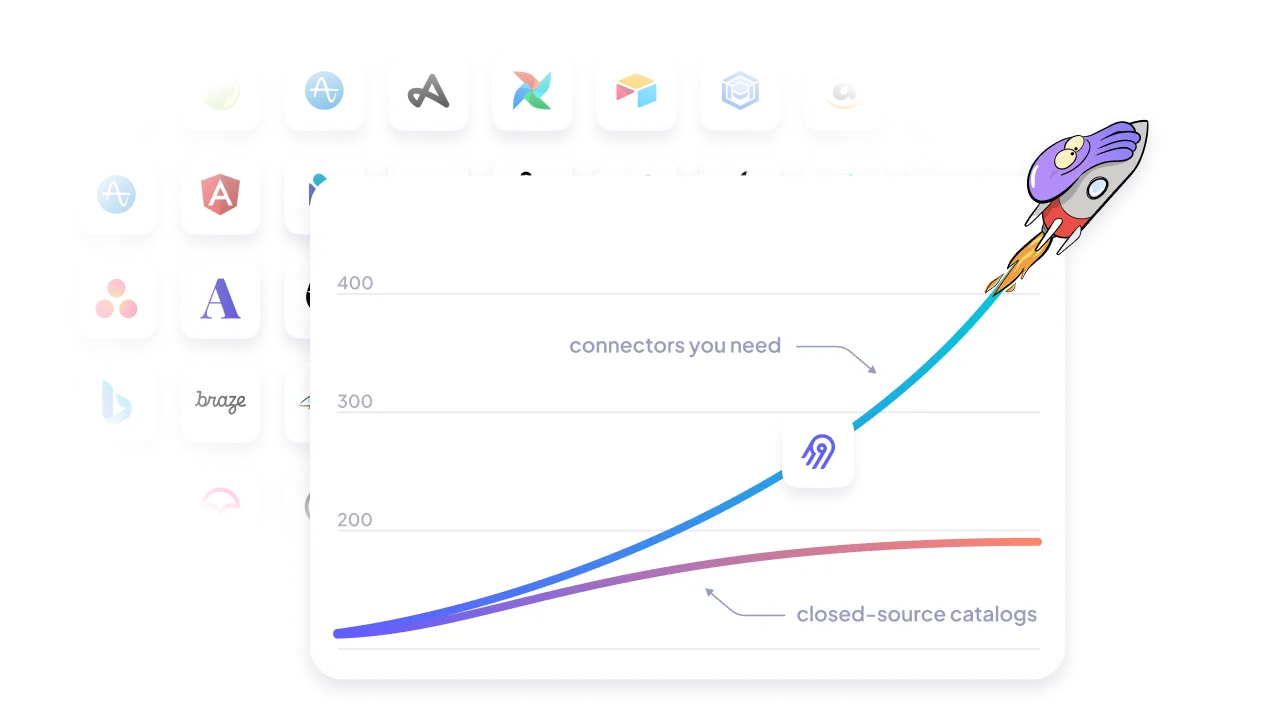
Cover your custom needs with our extensibility
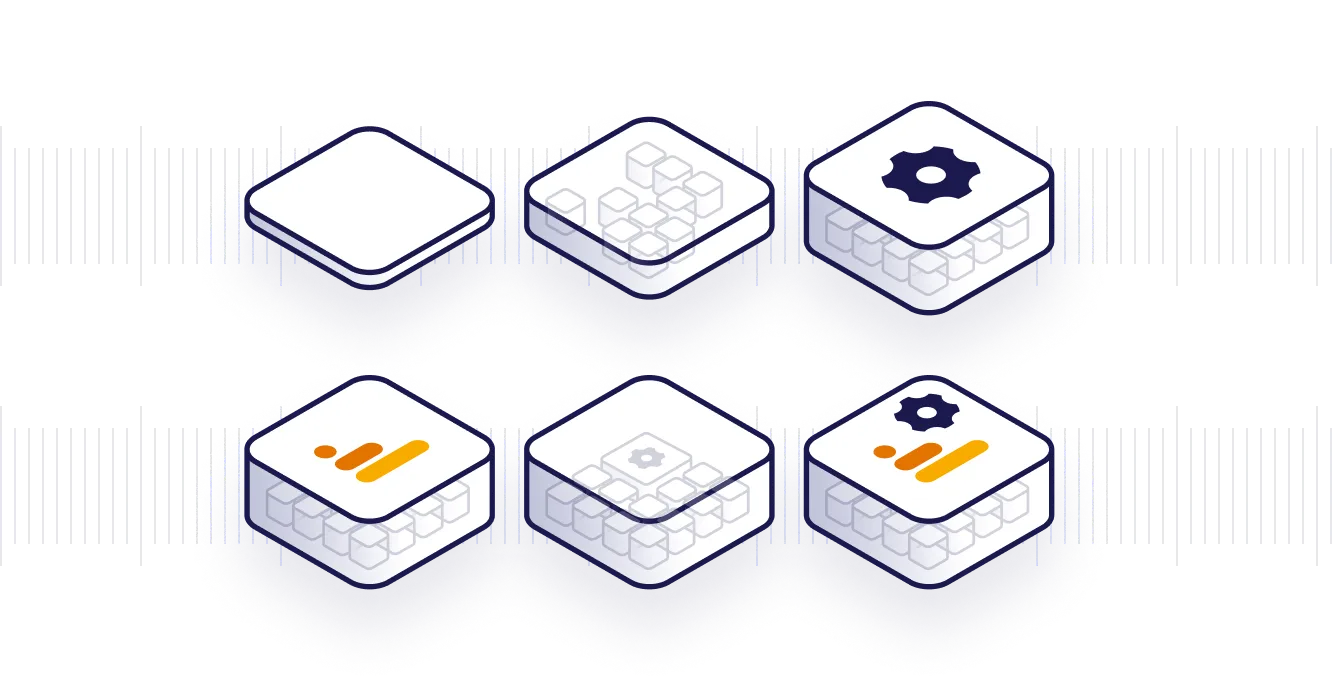
Free your time from maintaining connectors, with automation
- Automated schema change handling, data normalization and more
- Automated data transformation orchestration with our dbt integration
- Automated workflow with our Airflow, Dagster and Prefect integration
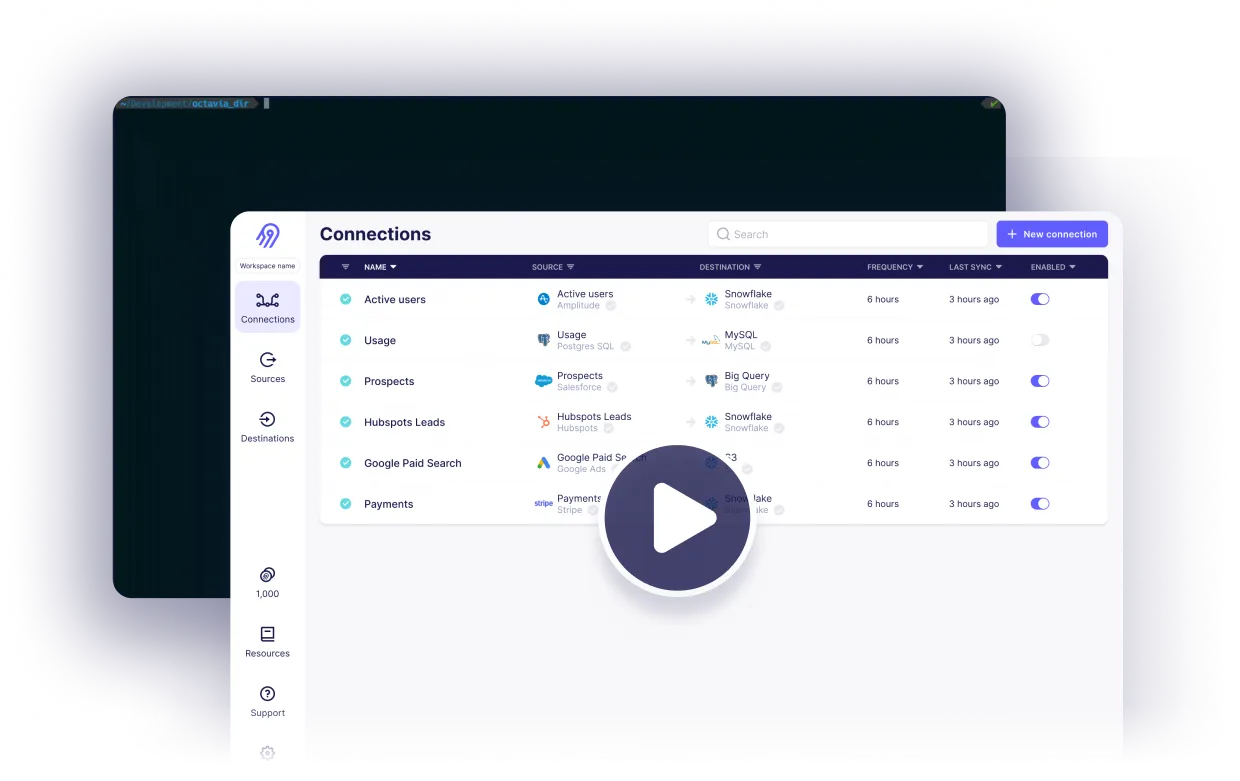
Reliability at every level
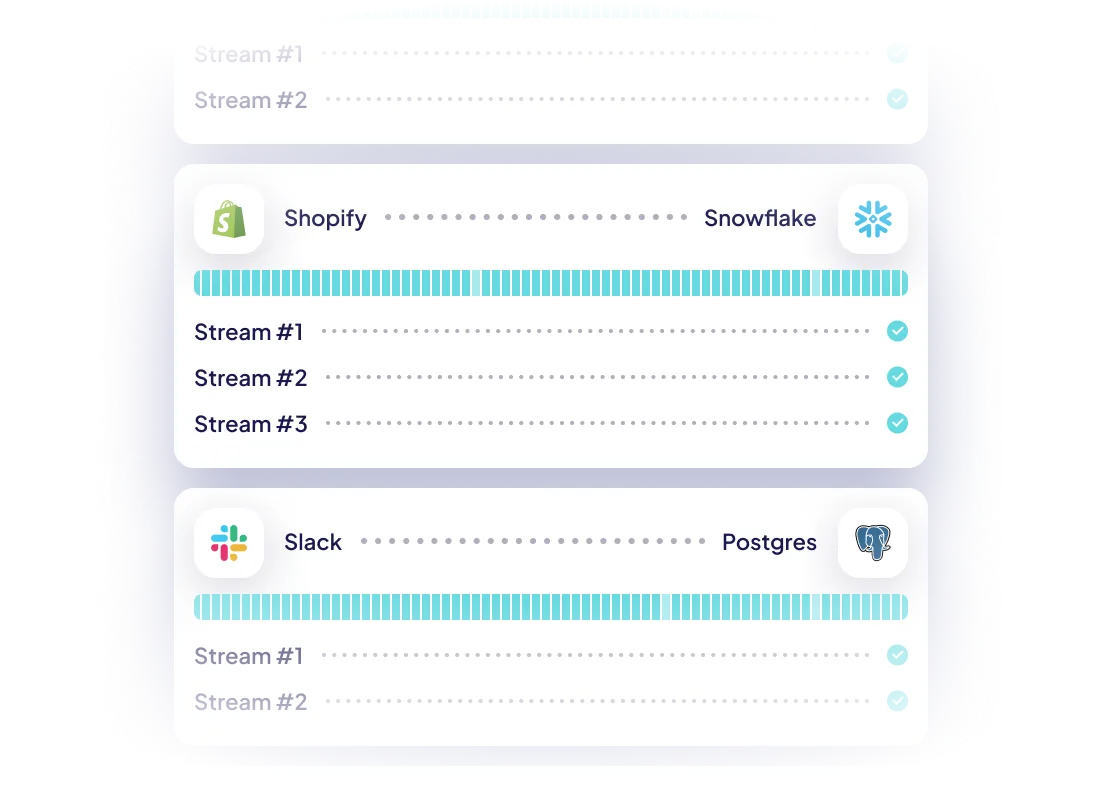



Airbyte Open Source


Airbyte Cloud


Airbyte Enterprise

Why choose Airbyte as the backbone of your data infrastructure?
Keep your data engineering costs in check
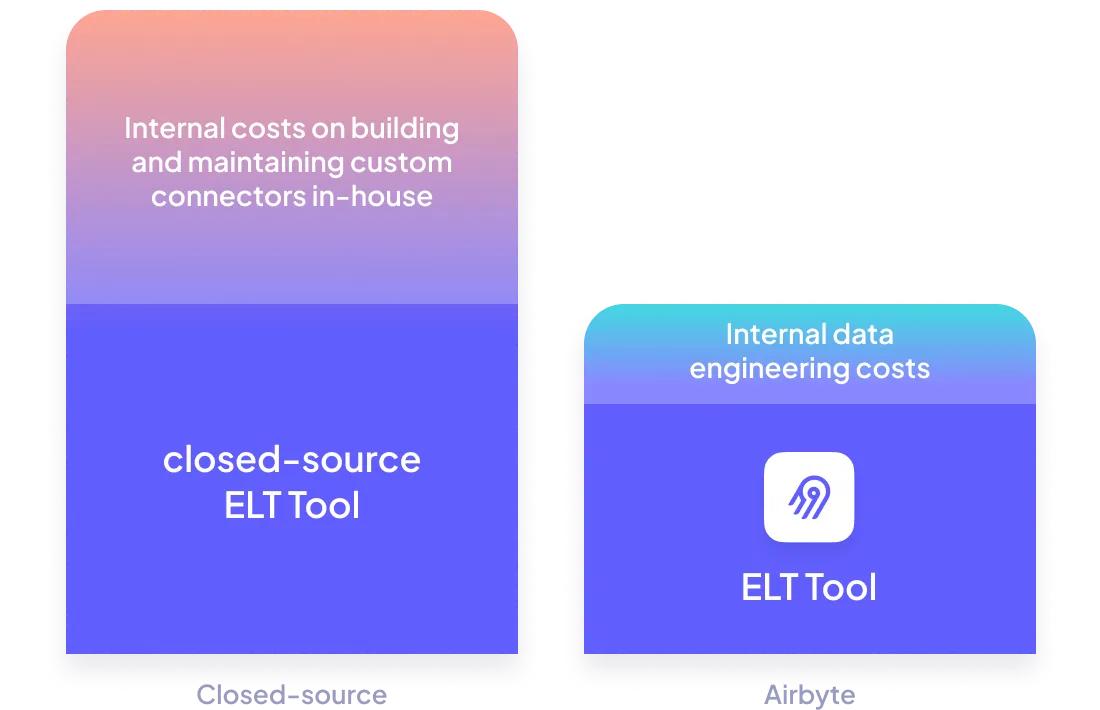
Get Airbyte hosted where you need it to be
- Airbyte Cloud: Have it hosted by us, with all the security you need (SOC2, ISO, GDPR, HIPAA Conduit).
- Airbyte Enterprise: Have it hosted within your own infrastructure, so your data and secrets never leave it.
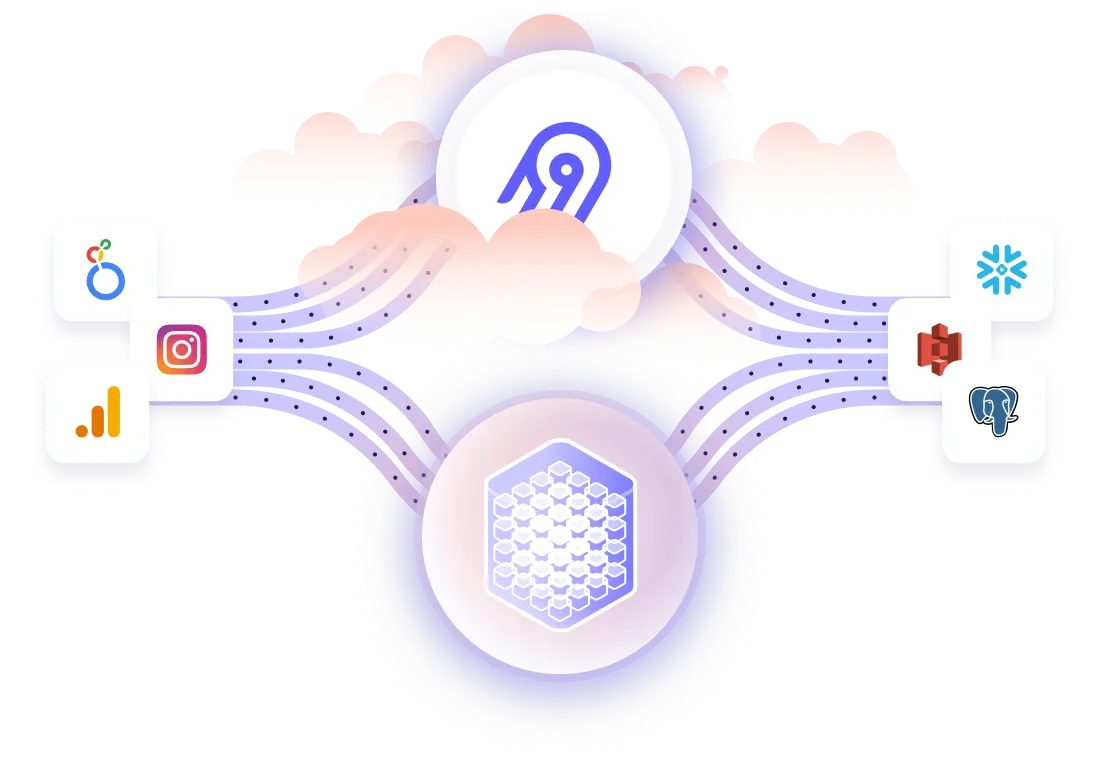
White-glove enterprise-level support
Including for your Airbyte Open Source instance with our premium support.
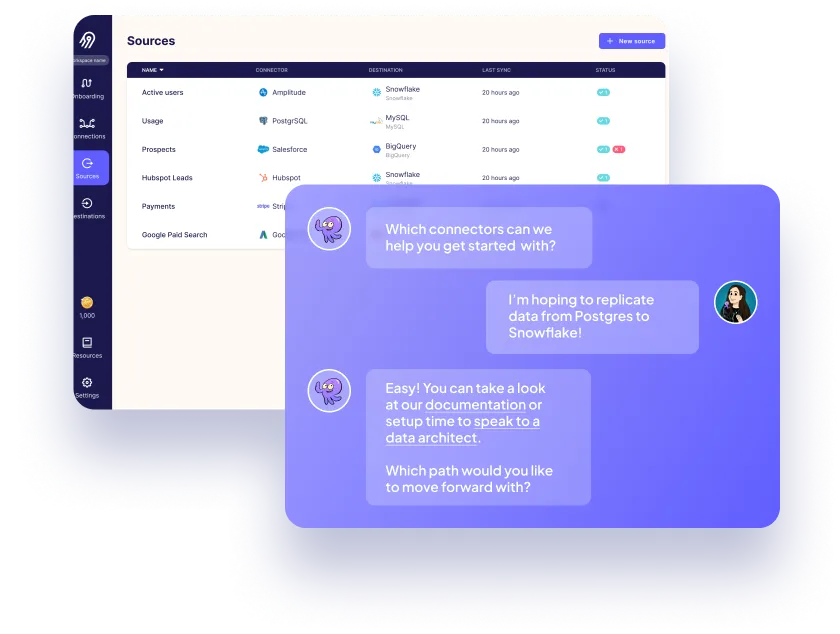

Fnatic, based out of London, is the world's leading esports organization, with a winning legacy of 16 years and counting in over 28 different titles, generating over 13m USD in prize money. Fnatic has an engaged follower base of 14m across their social media platforms and hundreds of millions of people watch their teams compete in League of Legends, CS:GO, Dota 2, Rainbow Six Siege, and many more titles every year.
Ready to get started?
FAQs
What is ETL?
ETL, an acronym for Extract, Transform, Load, is a vital data integration process. It involves extracting data from diverse sources, transforming it into a usable format, and loading it into a database, data warehouse or data lake. This process enables meaningful data analysis, enhancing business intelligence.
Fauna merges the flexibility of NoSQL with the relational querying capabilities and ACID consistency of SQL systems. Fauna implements a semi-structured, schema-free, object-relational data model, strict superset of relational, document, object-oriented, and graph. Fauna is a tool in Databases category of tech stack. Inventory of fauna as a tool for sustainable use of economically important mammal species. This is used by animals is a phenomenon in which an animal uses any kind of tool to attain a goal such as acquiring food and water, grooming, defense.
Fauna's API gives access to various types of data, including:
1. Documents: This includes JSON documents that can be stored, retrieved, and queried using Fauna's API.
2. Collections: Collections are groups of documents that share a common schema. They can be used to organize data and make it easier to query.
3. Indexes: Indexes are used to speed up queries by precomputing results. They can be created on any field in a collection.
4. Functions: Functions are reusable blocks of code that can be called from within queries. They can be used to perform complex calculations or manipulate data.
5. Roles: Roles are used to control access to data. They can be used to define permissions for different types of users or applications.
6. Keys: Keys are used to authenticate requests to Fauna's API. They can be used to control access to data and to track usage.
Overall, Fauna's API provides a flexible and powerful way to store, retrieve, and manipulate data. It can be used for a wide range of applications, from simple data storage to complex data analysis and processing.
What is ELT?
ELT, standing for Extract, Load, Transform, is a modern take on the traditional ETL data integration process. In ELT, data is first extracted from various sources, loaded directly into a data warehouse, and then transformed. This approach enhances data processing speed, analytical flexibility and autonomy.
Difference between ETL and ELT?
ETL and ELT are critical data integration strategies with key differences. ETL (Extract, Transform, Load) transforms data before loading, ideal for structured data. In contrast, ELT (Extract, Load, Transform) loads data before transformation, perfect for processing large, diverse data sets in modern data warehouses. ELT is becoming the new standard as it offers a lot more flexibility and autonomy to data analysts.




















